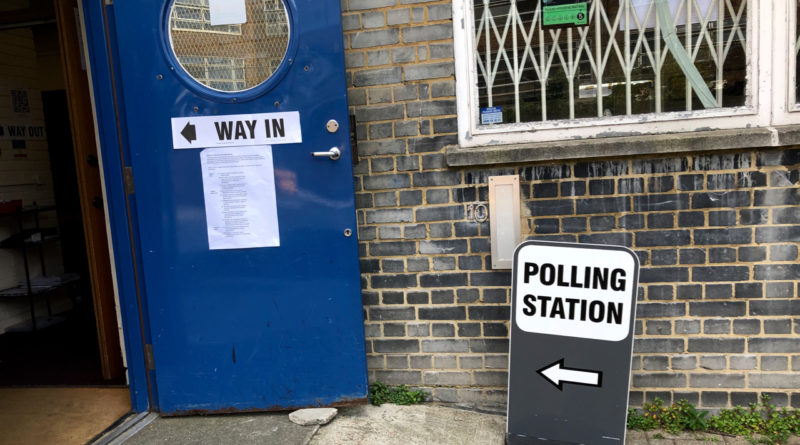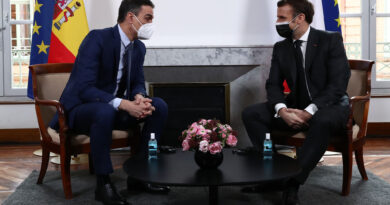EU elections: calls to investigate ‘vote denied’ to EU nationals in UK and Brits abroad
Calls are mounting to investigate what went wrong in the European Parliament election in the UK, as thousands of EU nationals living in Britain and British residents abroad were denied the right to vote on Thursday.
The scale of the problem is yet to be understood, but many EU nationals took on social media on May 23 to complain that they had not been allowed to vote due to administrative errors or obscure registration procedures.
In some cases, they were turned away at polls because they had not sent their Councils the UC1 form, a declaration that they would not vote in their country of origin. The form was introduced in 2014 as voting twice is illegal, but many people are not aware of it and not all Councils in Britain proactively sent it to their EU residents.
In many other cases, people had sent the form but this was lost or was not processed, or voters were just denied the vote by mistake. Some insisted that they had done all the paperwork and, following phone calls and emails, they were given the ballot paper. Many gave up.
Among those who made it, actor Alex Andreou said: “When I tried to vote, I found my name was crossed off the list as ineligible, even though I was registered and had sent the correct declaration both by mail and email. When I queried this, the official present called the electoral office and I spoke to someone. I forwarded the email with my form. He had to trudge through emails they received that day, to find they had received it and clear it with a supervisor, in order to reinstate me.”
Andreou said that the process took more than an hour. “Most people would have given up. While I was on the phone, a dozen voters were turned away for the same reason and did not question it,” he added.
Another voter told Europe Street via Twitter that she had tried to vote before going to work but was rejected. “I have registered and got my polling card at home. The lady I talked to in the electoral services was lovely and assured me it was a mistake by the polling station but had I not contacted the Council, I wouldn’t had voted at all.”
Many people shared their frustration at being turned away, with some being told to vote in their “home countries”.
The German husband of Sonia Delesalle-Stolper, UK and Ireland correspondent for French newspaper Libération, was also initially excluded but later allowed to vote.
“Democratic disaster”
John Ault, Executive Director of Democracy Volunteers, an election observation group, told Europe Street that they had evidence of EU nationals being rejected at polling stations in Oxford and London, but it was too early to understand the scale of the problem. The group is monitoring the EU elections in the UK, the Netherlands and Belgium, and will issue a report in the coming weeks.
Angela Antetomaso, an Italian candidate for the newly established The UK EU Party, said that the exclusion of EU nationals could be particularly damaging for her group, as they were counting on their support. She told Europe Street that people were being “denied a democratic right”.
“EU nationals already had difficulties voting in the 2014 EU elections, but since then many things have changed. We saw the start of the ‘hostile environment’, we were not allowed to vote in the EU referendum, and we had rights taken away from us in the Brexit negotiations. It is essential for us to elect MEPs who will defend our citizens’ rights in Europe.”
“I cannot but feel furious about these events, because they were preventable,” added Elena Remigi, who has collected testimonies of people impacted by Brexit in the books “In Limbo”. “EU citizens in the UK and UK citizens abroad have been living in limbo for more than 3 years. Many had no voice in the EU referendum and this was our chance to make our voices heard.”
London Mayor Sadiq Khan said he was “deeply disturbed to read so many reports of EU Londoners being refused their right to vote”. He called on the government to ensure “a thorough investigation into this as soon as possible.”
Naomi Smith, Interim CEO of pro-EU group Best for Britain, commented: “It’s now the duty of the Cabinet Office to make sure this democratic catastrophe never happens again, and importantly to ensure that EU nationals are not denied their chance to make their voice heard in a final say [on Brexit].”
Calls to investigate the problems also came from the Scottish government and from Guy Verhofstadt, Brexit coordinator at the European parliament.
Dutch MP Sjoerd Sjoerdsma tabled a question to the Ministry of Foreign Affairs on this “unacceptable” situation.
Nicolas Hatton, co-founder of EU citizens’ rights group the3million called the events a “democratic disaster that has disenfranchised many of the European citizens most affected by the outcome of these elections.”
The3million encouraged anyone denied the vote to write to the Electoral Commission. They provided a template for the complaint that has been downloaded 4,500 times in 48 hours. The group is now gathering evidence through a web page for a lawsuit.
The Electoral Commission reacted saying that “all eligible EU citizens have the right to vote in the EU elections in their home member state.”
In fact, although EU nationals living in another EU country should be able to vote where they reside or in the country of origin, several EU member states do not allow their citizens abroad to take part in the EU elections. Among these countries there are Ireland, Cyprus, the Czech Republic and Slovakia. Italy, Greece and Bulgaria require their citizens to travel back to their constituency to be able to vote, and others set early registration deadlines.
Some EU nationals also noted that the UK is now their “home”.
Late preparations
The UK started preparing for the EU elections at the beginning of April, when EU leaders agreed to postpone to October the country’s exit from the European Union. But the official government position was that everything would be done to pass the withdrawal agreement and avoid going to the polls. A formal announcement by Cabinet Minister David Lidington that the UK would take part in the elections was made in parliament only on May 7, the same day of the registration deadline.
“The very short notice from the government of the UK’s participation in these elections impacted on the time available for awareness of this process amongst citizens, and for citizens to complete the process,” admitted the Electoral Commission in a statement.
Earlier on Tuesday, EU campaigners had already lodged a complaint on how the Electoral Commission had handled the registration. Activists from the3million argued that the additional form should have been sent to all EU nationals in the UK. The group denounced “insufficient guidance” followed by “inconsistent service from local authorities.”
The3million cited examples of misinformation and administrative inaccuracies. These included a Dutch couple in Maidenhead being told the form had not been received, while it was put in the post two weeks before the deadline. An Austrian in Barnet was told that he had to register as a British citizen but later was declared eligible to vote. Other letters told EU citizens they were not allowed to vote even if the registration had been confirmed by phone, say the3million.
The introduction of the UC1 form, in 2014, had already caused controversy as EU nationals eligible to vote in the UK were decimated (from 1,043,629 in 2009 to 327,833, according to pro-EU group New Europeans). The issue led to a parliamentary enquiry and the Electoral Commission promised to simplify the procedure. But the plan was abandoned when the UK voted to leave the European Union.
The Electoral Commission emphasizes that “the requirement for EU citizens to complete a UC1 form is a process set out in law” and can only be changed by government and parliament.
MPs Mike Gapes of Change UK and Joanna Cherry of the Scottish National Party (SNP), together with other members of parliament from the Labour Party, the Liberal Democrats, the SNP and Wales’ Plaid Cymru had urged the government to ensure that forms would be available at polling stations on May 23. But the government did not move.
British in Europe also facing problems
Late preparations also affected British citizens living in other EU countries. The UK was not expected to take part in the EU elections and when the government made the announcement, the deadline to register and vote locally had already passed in many EU member states.
The UK also does not allow residents abroad to vote if they have lived outside the country for more than 15 years. The coalition of British in Europe estimates that only around 40% of British abroad can still vote in the UK. As for those who can, many complained that polling cards did not arrive or arrived too late to be sent back on time.
“It comes as no surprise whatsoever that postal votes have gone missing, arrived late or simply didn’t arrive at all because the UK’s attitude to its overseas voters is outdated and broken. Just applying similar rules to someone in Germany or Spain as someone who lives 100 metres away from their local Council doesn’t make sense and then sending ballots out using the cheapest route when there is an imminent deadline is nothing short of reckless,” said Jane Golding, co-chair of British in Europe.
A group of British MEPs has now written to the Electoral Commission asking to consider valid all postal votes received before the count on Sunday.
Following the chaos, British MEP Claude Moraes, who chairs the civil liberties, justice and home affairs committee at the European parliament, called on the Home Secretary to “urgently investigate the response of the Electoral Commission to this situation.”
In his letter, he wrote that there are “significant concerns within the European parliament and the EU as a whole that EU citizens in the UK and British voters in the EU have been disenfranchised at this very sensitive moment in our electoral politics.”
The election of the European parliament, the only EU institution directly elected by European citizens, started on Thursday 23 May in the United Kingdom and the Netherlands, and will continue until Sunday 26 May to cover all 28 countries of the European Union. More than 400 million people are eligible to vote.
EU Justice Commissioner Věra Jourová expressed regret at what happened in the UK. “Each vote counts,” she said.
A spokesperson at the European Commission reminded on Friday that the organisation of elections is a responsibility and a competence of national authorities. EU rules require member states to “inform EU nationals residing on their territory in good time and in an appropriate manner on the conditions and detailed arrangements for the exercise of their right to vote.”
The Commission will assess the conduct of the elections in all EU member states and produce a report at a later stage, the spokesperson said.
Text and photo by Claudia Delpero © all rights reserved.




